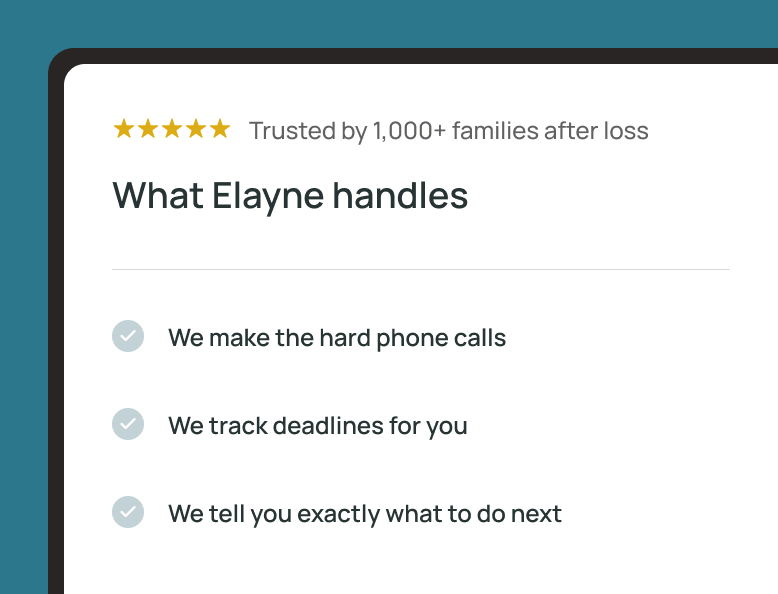Knowing the right thing to say when someone loses a loved one isn’t easy. Many will struggle with the right words, even if they want to express support. While expressing condolences is critical within the workplace, “sorry for your loss” can feel generic and unsympathetic.
Struggling with grief within the workplace is virtually impossible. After losing my infant son, returning to the office was met with generic apologies and hushed whispers. It was cold and isolating. This article will tell you how to say condolences without isolating the employee further.
{{blog-cta-admin}}
Understanding Grief in the Workplace
Grief is universal, yet workplace culture often forces those suffering to do so silently. It impacts the physical and mental state of those suffering, expecting staff to push through and move forward.
The Georgia Department of Public Health indicates bereaved employees face higher rates of absenteeism, are more likely to quit their positions, and face physical manifestations of grief within a year of the death. Trouble concentrating, loss of motivation, shift in priorities, and difficulty sleeping are typical.
How to Say "Sorry for Your Loss"
Grief impacts everyone differently, making a standard approach impossible. There are many ways to express support and condolences, none having more impact than another. While there is nothing wrong with “saying sorry for your loss,” there are alternative options that connect with the individual on a personal level.
Focus on Sympathy
Connect your condolences with the individual who passed, starting with an apology. Using the person who died in the apology makes it feel real and acknowledged. Try a simple statement, “We heard about your grandfather. I’m so deeply sorry you’re experiencing this loss. We’re thinking of you.”
Hold space for the individual emotionally and connect with how they are feeling. Death is difficult to process; if you have a memory of the individual, share it with the bereaved, keeping it short and sweet.
How to Respond to "Sorry for Your Loss"
Although “sorry for your loss” isn’t deeply personal, it’s well-intentioned when someone doesn’t know what to say. Most people will understand any reaction to condolences, but trying to remain gracious can smooth over awkward moments. It isn’t your responsibility to put others at ease in these moments, so state whatever you’re comfortable sharing. If you don’t know what to say, a simple thank you is more than enough.
What to Say Instead of "Sorry for Your Loss"
To personalize your condolences, consider saying the following phrases:
- I’m sorry you’re going through this.
- We’re thinking of you during this difficult time.
- We’re sorry to hear of <departed>. We’re here if you need to talk.
- I can’t imagine what you’re going through. I’m thinking about you and your loved ones.
- We were heartbroken to hear of the loss of your loved one.
- While there are no words that take away the pain of your loss, I’m deeply sorry for your loss.
Supporting a Grieving Colleague
For the bereaved, support is critical for the reintegration into the workplace. Finding a balance after losing a loved one must start with the management and policies surrounding grief. Returning to work requires tact and skill; it begins with open conversation and builds through support and understanding.
Avoiding Common Pitfalls in Grief Communication
Don’t Ignore the Loss
We often struggle to say anything when we’re afraid to say something wrong. Unfortunately, staying silent makes the bereaved feel isolated and alone. It suggests an unsupportive environment. Always say something to acknowledge the loss, even if you stumble through the words.
Always Make It About Them
After someone suffers a loss, the initial reaction is to empathize and understand. This often comes across as sharing personal experiences with loss, which shifts the focus from the person and focuses on you. While this may not be the intention, the impression is lasting.
Although you may want to try to connect, always keep your condolences and thoughts focused on the individual.
Stay Away from Religion
Avoid spirituality and religious intent when sending condolences to a coworker or employee. Many individuals will struggle with religion (even if previously devout) when someone passes, making the loss feel unimportant and unnecessary.
Don’t Try to Solve Grief
No one wants to watch another person suffer, but trying to distract from grief is short-lived and hurtful. Comments downplaying the loss or light-hearted comments may cause more profound pain for the bereaved. Rather than distract from the grief, support the individual by acknowledging its depth and validating their experience.
Creating a Compassionate Workplace Culture
Showing you care makes a significant difference, but showing you care about your employees is the first step in creating a compassionate workplace culture. Developing a compassionate workplace culture starts with sympathy, compassion, and empathy.
Sympathy
Sympathy allows a superficial recognition of distress within other colleagues or staff. It will enable a direct notice of suffering in others.
Compassion
Compassion encourages direct communication and interaction. It offers a place for those in distress to feel heard, seen, and understood without forcing them to share.
Empathy
Finally, empathy holds space for individuals, offering time and attention to understand the distress a person feels. It doesn’t force the individual to push through the emotion but allows them space to exist despite the emotion.
By incorporating these three aspects into your workplace culture, you connect with the community within your business. You allow small moments of interpersonal connection, limiting the isolation commonly found with grief.
Additionally, outside bereavement care can connect individuals with valuable resources when they’re struggling through grief. Elayne assists with personal legacy planning, navigating loss, and personalized bereavement planning.
Resources for Further Support
To integrate these processes and procedures in your workplace, consider these resources for additional information:
Positive Psychology- Compassion in the Workplace: 9+ Examples & Tips for Leaders
Elayne- Personalized Bereavement and Legacy Planning
How to Offer Support to a Grieving Colleague
{{blog-cta-admin}}
Final thoughts
While everyone struggles with grief at some point, not many individuals know how to support and console another person effectively. Although many struggle with the right words, expressing condolences is critical within the workplace. By connecting with the bereaved personally, considering their loss, and validating their grief, your condolences will mean significantly more.
Encouraging a compassionate workplace, including integrating bereavement software like Elayne, holding space for empathy and sympathy in the office, and regularly checking in with employees can also show an increased awareness of emotional and mental well-being.












































